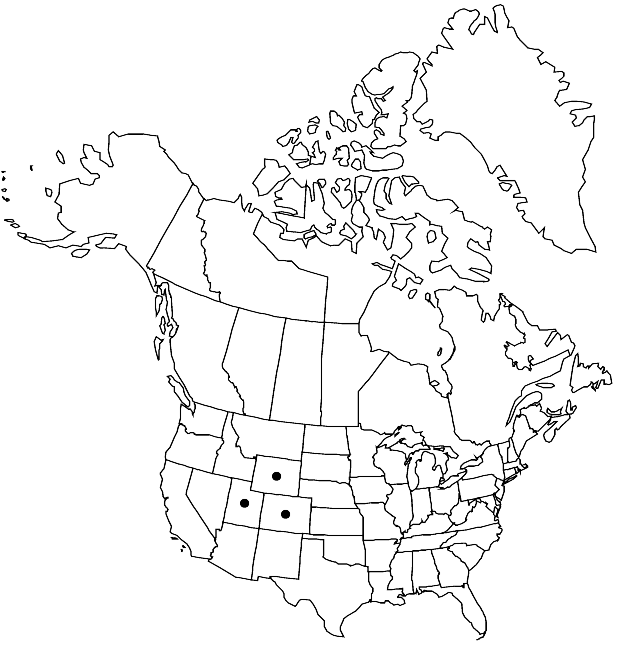Stanleya bipinnata
Erythea 4: 173. 1896.
Perennials; (base sometimes woody); (glaucous), pubescent or glabrous. Stems erect to ascending, usually unbranched, rarely branched (few) proximally, 1.5–4.5 dm, (sparsely pubescent). Basal leaves (withered by flowering), similar to cauline. Cauline leaves petiole 1.5–3 cm; blade (fleshy), lanceolate to ovate in outline, 4–7.5(–9.5) cm (smaller distally), margins (proximalmost) often 2-pinnatifid, or (distal) pinnatifid or pinnatisect, (surfaces sparsely pubescent, trichomes crisped). Racemes dense. Fruiting pedicels horizontal to divaricate-ascending, 5–10 mm, (sparsely pubescent). Flowers: sepals linear, 6.5–10 mm, glabrous; petals yellow-orange, oblong or narrowly so, 5–12 × 0.8–2 mm, claw (nearly linear), 5–7 mm, distinctly wider at base, pubescent inside; filaments 10–15 mm, glabrous; anthers 3–4 mm; gynophore 4–11 mm, sparsely to densely pubescent. Fruits divaricate, tortuous, (torulose), terete, 2.5–4.6 cm × 1.5–2 mm; ovules 24–34 per ovary; style 0.02–0.4 mm. Seeds oblong, 2.2–2.6 × 0.9–1.2 mm. 2n = 28.
Phenology: Flowering Jun–Jul.
Habitat: Loose shale, clay hills, open plains, gumbo swales, dry draws
Elevation: 1800-2400 m
Distribution

Colo., Utah, Wyo.
Discussion
Stanleya bipinnata is known from Larimer County in Colorado, Uinta County in Utah, and Albany, Carbon, and Uinta counties in Wyoming. R. C. Rollins (1993) and R. W. Lichvar (1983) treated it as a variety of S. pinnata; the morphological differences between these taxa strongly support the recognition of two species.
Selected References
None.